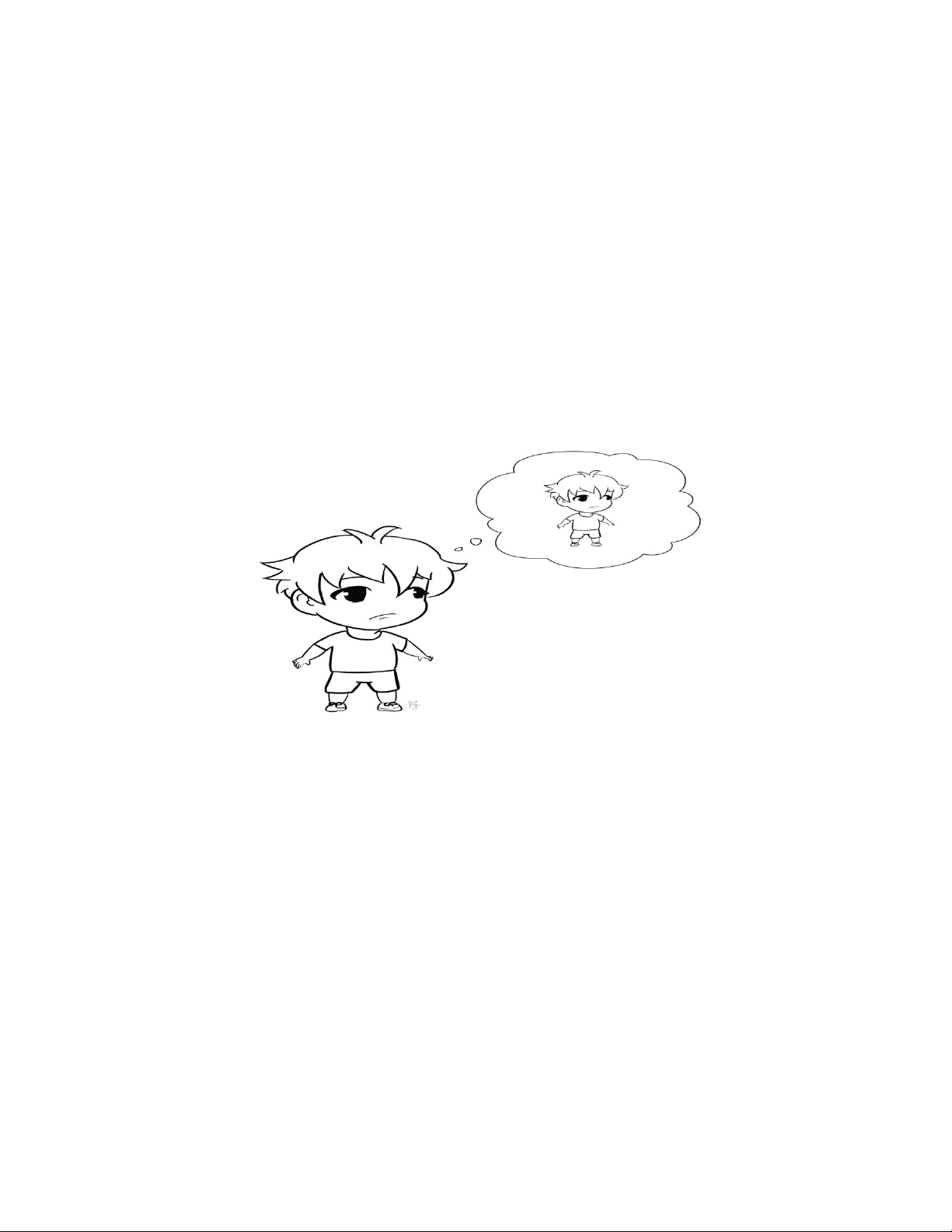
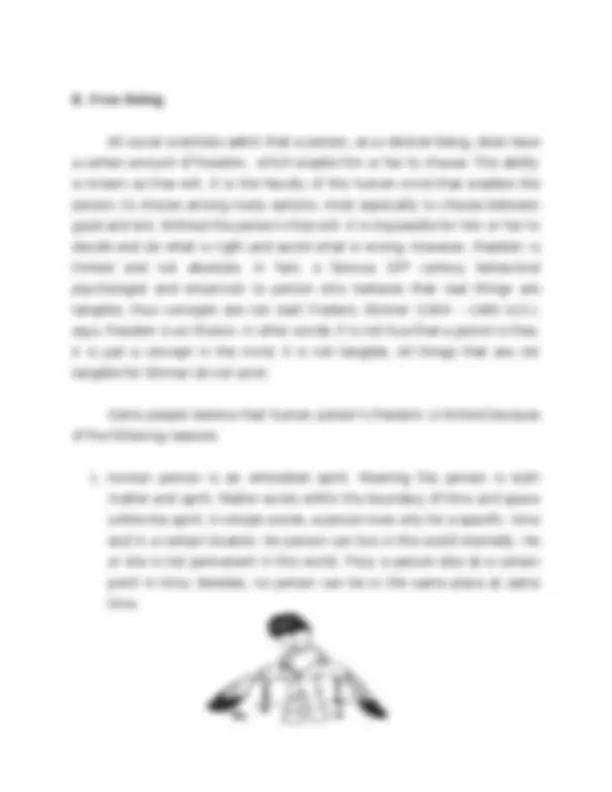
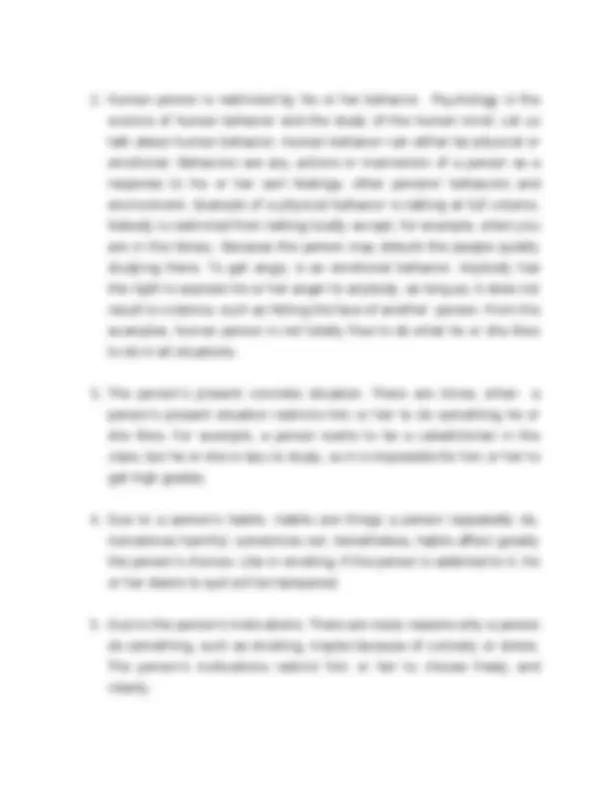
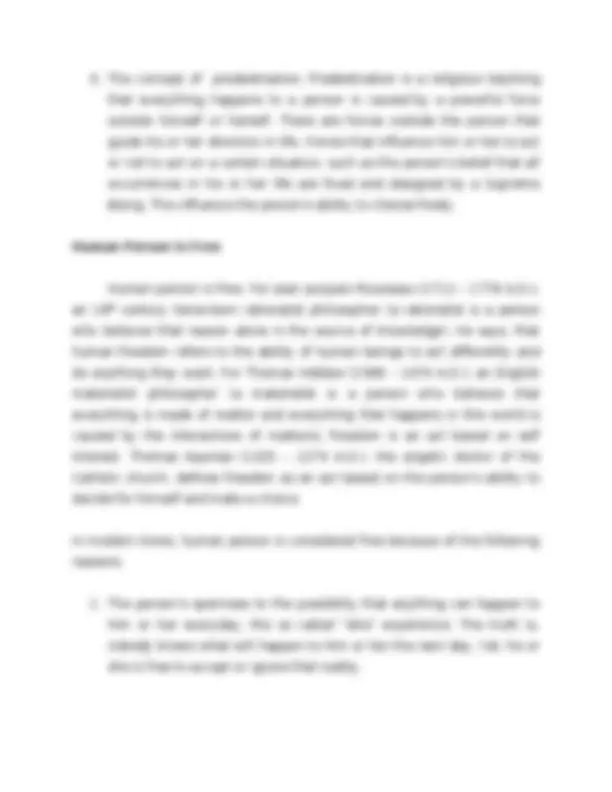
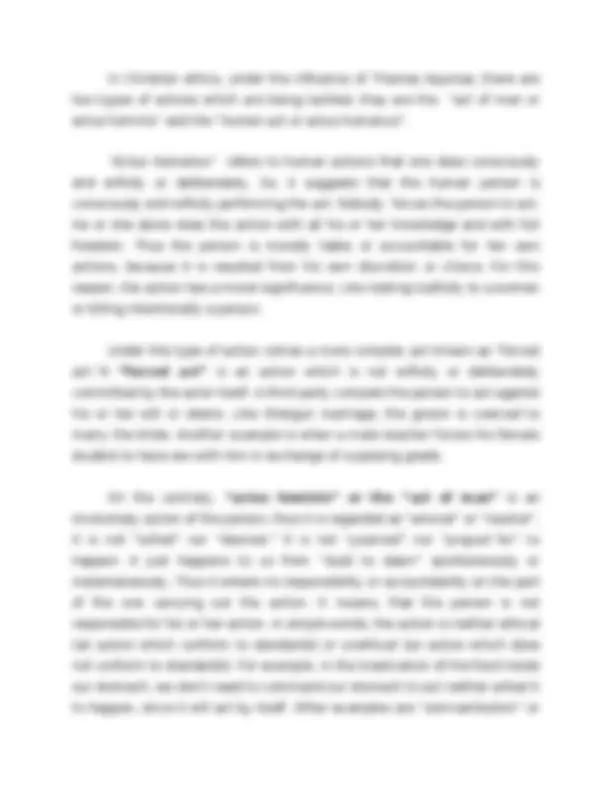
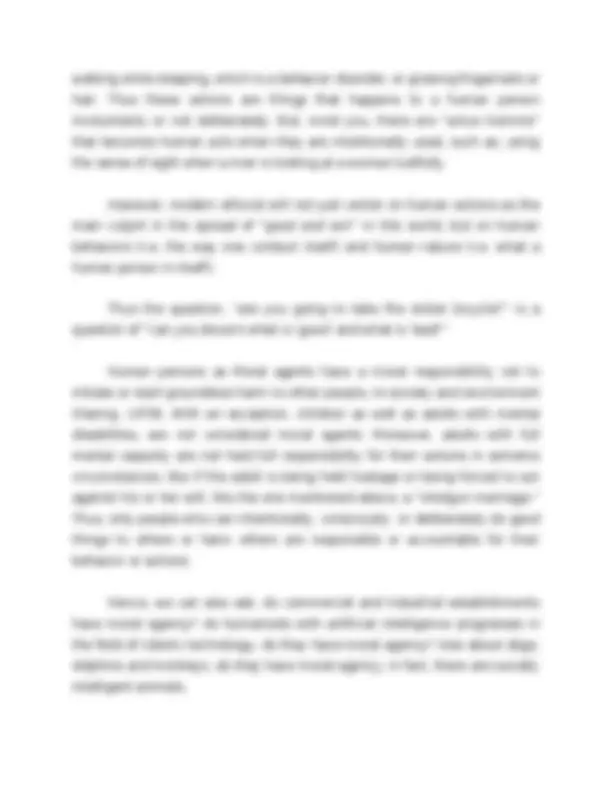
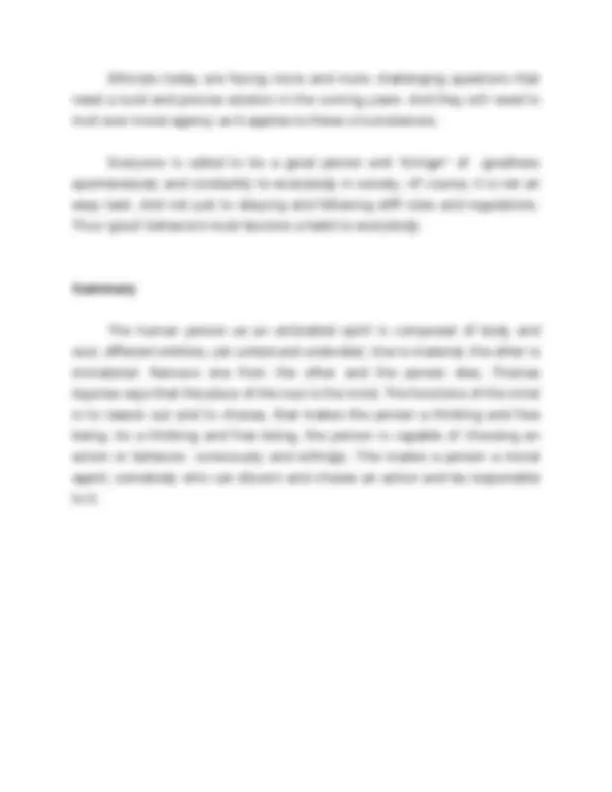


Study with the several resources on Docsity

Earn points by helping other students or get them with a premium plan


Prepare for your exams
Study with the several resources on Docsity

Earn points to download
Earn points by helping other students or get them with a premium plan
Community
Ask the community for help and clear up your study doubts
Discover the best universities in your country according to Docsity users
Free resources
Download our free guides on studying techniques, anxiety management strategies, and thesis advice from Docsity tutors
Ethics can be very useful to us. But it will not tell us what to think and do. It will not impose so many rules to observe and obey without questions. The use of ethics are the following: 1. It helps us solve hard questions in life and encourages us to solve it by ourselves. 2. It evaluates what lies behind our moral judgements. 3. It attempts to explain and evaluate what a good person is like. 4. It can’t guarantee that we will always make a correct decision, but it will give us a lucid and
Typology: Study notes
Uploaded on 03/06/2021
1 document
1 / 10

This page cannot be seen from the preview
Don't miss anything!







Chapter 2 Human Person as Moral Agent Learning Objectives At the end of this chapter, the learners are expected to:
The human person according to Karl Rahner (1904 – 1984 A.D.), another influential Jesuit priest and theologian of the 20th^ century, is a union of body and soul. The body is the visible realities in a person like the eyes or limbs, while the soul is the spiritual part, the invisible part, like the mind. They are not the same but always together. Separate them then the person will cease to exist. Although the term ‘soul’ is purely conceptual, nonetheless, two great western philosophers, Aristotle (384 -322 B.C.) and Aquiñas (
A tract on human acts is necessary, but it does not lead to the thought that morality is only a matter of actions, as if, because of the trees one will miss the forest. The person is more than the sum of his actions. In truth, more than an embodied spirit, with the ability to reason out and make a choice, the person is also a social being. A being that interacts with other beings including his or her environment. It is his or her very nature. From infanthood to adulthood, the person never miss to interact. During his or her infanthood, if he or she needs milk or food, he or she interacts with his or her mother to survive. During adult life, if the person needs food to grow, and be healthy and productive, he or she interacts with other beings like the animals and plants. If he or she needs to learn from experiences, the person interacts with fellow human beings. If human person is isolated from all other beings, he will not survive. However, if other beings influence the life of one person, he or she influences also other beings in this world, either good or bad. Thus the person is more than his brain, freedom, body and spirit. The human person is also a social being. He either affects or be affected by others in society. For this reason, the person must assess first his or her action or behavior in society, if it is appropriate or inappropriate; good or bad; right or wrong. The capacity of the human person to discern what is ‘good and bad,’ ‘right or wrong,’ ‘appropriate or inappropriate,’ and be responsible for one’s actions or behaviors are the basis for which human person is called a moral agent. All actions of the human person can be called “human acts.” But the concept here is restricted to those actions that proceed from reason and freewill. Acts for which the human person is responsible.
In Christian ethics, under the influence of Thomas Aquinas, there are two types of actions which are being tackled, they are the “act of man or actus hominis” and the “human act or actus humanus”. “Actus Humanus” refers to human actions that one does consciously and wilfully or deliberately. So, it suggests that the human person is consciously and wilfully performing the act. Nobody forces the person to act. He or she alone does the action with all his or her knowledge and with full freedom. Thus the person is morally liable or accountable for her own actions, because it is resulted from his own discretion or choice. For this reason, the action has a moral significance. Like looking lustfully to a woman or killing intentionally a person. Under this type of action comes a more complex act known as “forced act.”A “forced act” is an action which is not wilfully or deliberately committed by the actor itself. A third party compels the person to act against his or her will or desire. Like Shotgun marriage, the groom is coerced to marry the bride. Another example is when a male teacher forces his female student to have sex with him in exchange of a passing grade. On the contrary, “actus hominis” or the “act of man” is an involuntary action of the person, thus it is regarded as “amoral” or “neutral”. It is not “willed” nor “desired.” It is not “yearned” nor “prayed for” to happen. It just happens to us from “dusk to dawn” spontaneously or instantaneously. Thus it entails no responsibility or accountability on the part of the one carrying out the action. It means, that the person is not responsible for his or her action. In simple words, the action is neither ethical (an action which conform to standards) or unethical (an action which does not conform to standards). For example, in the mastication of the food inside our stomach, we don’t need to command our stomach to act neither willed it to happen, since it will act by itself. Other examples are “somnambulism” or
Ethicists today are facing more and more challenging questions that need a lucid and precise solution in the coming years. And they will need to mull over moral agency as it applies to these circumstances. Everyone is called to be a good person and ‘bringer’ of goodness spontaneously and constantly to everybody in society. Of course, it is not an easy task. And not just to obeying and following stiff rules and regulations. Thus ‘good’ behaviors must become a habit to everybody. Summary The human person as an embodied spirit is composed of body and soul, different entities, yet united and undivided. One is material, the other is immaterial. Remove one from the other and the person dies. Thomas Aquinas says that the place of the soul is the mind. The functions of the mind is to reason out and to choose, that makes the person a thinking and free being. As a thinking and free being, the person is capable of choosing an action or behavior, consciously and willingly. This makes a person a moral agent, somebody who can discern and choose an action and be responsible to it.